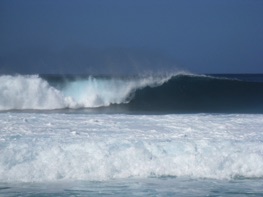2. Wave and Particle, Joy and Grief
I do believe that we are here to en-joy the world (a transitive verb)— that is, to give joy to the world around us, to sing songs of praise, delight, and gratitude. As Rumi says in “One Song,” “We have borrowed these clothes, these/ time-and-space personalities,/ from a light, and when we praise, we pour them back in.”

But we are not the only singers. The myth of our dominion over things is the mirror of our despair at our own isolation, our banishment from the green world, where all creatures live “in the peace of wild things/ who do not tax their lives with forethought of grief.”
If you sit and watch an undomesticated and unconfined animal for a while, you see an alien alertness—alertness so full of the present there's no room for past or future. The naturalist John Burroughs, watching bluebirds in the spring raise one brood after another and let them go, observes, "No time is wasted in pity or regret."
I am reminded of Whitman’s widowed mockingbird and his “reckless despairing carols” in “Out of the Cradle.” Is that the bird’s despair or the poet’s? Both, I think. Grief is as universal as joy, as anyone knows who has watched and listened as a Canada goose circles and circles, calling for its lost mate. One of the lessons of the wild, perhaps, is the distinction between grief, which we share with all beings, and the peculiarly human and self-reflecting occupation of regret.
Burroughs might have said, no time is available for pity or regret. A wild animal lives its whole life in the moment before its death. Part of us longs for that kind of present-ness. It is the goal of most, if not all, of our spiritual disciplines. But we also know that we cannot rest in that presentness: felix culpa! The enabling wound of human consciousness drives us back into the measure of time—into history, hope, poetry. We can, however, be present for a while. And somehow—as part of the world's gift to us, our evolutionary inheritance—to have been there ever is to be there now. We are the wave of all there is, the superposition of all that went into our making and of all that we leave in our wake, even as we are the collapse of the wave function into the particularity of this one life. Just this.